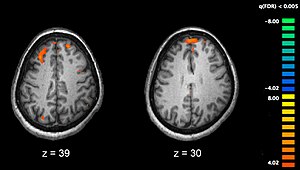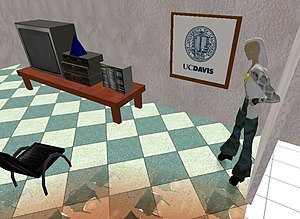 Today, let's talk about hypnosis. I find it a fascinating subject both from a clinical (medical and mental health) point of view and also as a forensic tool.
Today, let's talk about hypnosis. I find it a fascinating subject both from a clinical (medical and mental health) point of view and also as a forensic tool.In this article I will take a brief look at forensic hypnosis, and then I will introduce you to my friend Gus Philpott, a long time hypnotherapist who will share information about the process.
Video Quick Study (1:31) What is hypnosis?
Recently, I have read two novels that included hypnotherapy in two different but interesting ways in their plots. The Blue Monster was written by Mike Roche. Click LINK to go to his Thrillwriting interview.
* The Supreme Court ruled that limited use of information gathered under hypnosis is permitted.
A police interviewer/interrogator who uses hypnosis is a forensic hypnotist also called an investigative hypnotist. They must follow certain guidelines in order for the information to be used in courts.
* A detective who is involved in the case or has prior information cannot be the hypnotist. The fear being that
false memories are being planted. See Blog Article on the fragility of human memory and
eye-witness, and you will immediately grasp how a hypnotist's involvement would make for some devious
PLOT TWISTS.
* Only witnesses and victims may be hypnotized.
* Suspects may not be interrogated under hypnosis. However, if a suspect wishes to be hypnotized as part
of her defense, she can use the information gleaned in the hypnosis session to help exonerate her. This
information is permitted in court.
of her defense, she can use the information gleaned in the hypnosis session to help exonerate her. This
information is permitted in court.
* Sessions must be recorded.
* A person can only be hypnotized one time.
* Hypnosis is used as a last resort.
* They must guard against re-traumatizing the victim or witness.
DANGERS
* As mentioned above - false information can be ingrained in the memory during hypnosis.
* Individuals maintain their ability to lie.
Video Quick Study (2:52) - Officer talks about his new certification as a forensic hypnotist.
Video Quick Study (13:33) - Tom Silver forensic hypnosis expert
Video Quick Study (29:19 but skip right to the 16:00 mark the beginning is a weird puppet show)
Don Glass talks about doing forensic hypnosis.
Video Quick Study (5:26) Excellent discussion of hypnosis and if you can use hypnosis to commit a crime.
Video Quick Study (13:33) - Tom Silver forensic hypnosis expert
Video Quick Study (29:19 but skip right to the 16:00 mark the beginning is a weird puppet show)
Don Glass talks about doing forensic hypnosis.
Video Quick Study (5:26) Excellent discussion of hypnosis and if you can use hypnosis to commit a crime.
 |
| Image from Pinterest |
And now for the interview -
Gus Philpott. Gus and I have known each other for
almost twenty years now. He used to hypnotize me
on a regular basis when I was in grad school.
Howdy Gus, can you tell my readers a little bit
about your background with hypnotism?
Gus - Certainly. I studied regression hypnotherapy with the
late Dr. Hickman, whom I first met in 1988.
Of course, she wasn't "the late... " then. I use a
non-directive method which employs asking a lot of
questions, not giving a lot of directions.
Fiona - What qualifies someone to do generalized
hypnotherapy? Are you required to have certification
like a forensic hypnotist?
Gus - There are certification courses, but they are not
required for general practice; only if the hypnotist
wants to be recognized within a professional
association. Qualifications include liking people, wanting
to help, being a good listener.
Fiona - You have a law enforcement background...
Gus - Yes, I was a police officer in a small Iowa college town and a deputy sheriff in Colorado for more
than 7 years. That was before I studied hypnotherapy.
Fiona - Have you ever used hypnotherapy to help with a crime?
Gus - I am familiar with how it can be used, but my contacts with law enforcement agencies have not
provided opportunities to do so. One of the most popular cases involving use of hypnosis was in
California when a school bus full of children was taken over. The driver later recalled the license plate
of a car used by the criminals.
Link to the news story
Fiona - And now Gus is out with a new non-fiction about his experiences with hypnosis called
The Healing Power of Hypnotherapy.
 |
| Amazon Link |
Gus - Most of my book is a collection of stories about sessions I've done over the 20 years since
Dr. Hickman taught me.
Fiona - Gus, can you start at the very beginning and walk us through a hypnosis session from the
practitioners point of view?
Gus - Sure. Since I'm not a doctor, I refer to the hypnotized person as my "client". The first step is to explain
what hypnosis is and to answer questions. Then I explain the induction; i.e., the method of helping the
client relax.
Fiona - Let's step back, could you tell me exactly what hypnosis is, please.
Gus - I define hypnosis as a state of relaxation. It's better if you don't "try" to get hypnotized. Just "get"
hypnotized; i.e., relaxed.
 |
| image trolled from Pinterest |
Gus - Hypnotism is a peaceful, relaxed state in which you just
put aside thoughts, cares, worries, anxiety, concern,
questions - to the extent possible.
If I were working with a victim of a crime, I would
explain that we'll work our way backwards from today
to the time of the crime. Quite often, emotions,
sometimes high emotions, are involved.
I explain that it will likely feel like the crime is happening
all over again. It will be brief, and it's important for them
to know that it is not REALLY happening again. They
will just re-experience it.
Fiona - Do you feel like this re-victimizes the client?
Gus - No, I don't feel that, and I tell them that, if they become
emotional or afraid, I'll just touch their hand
with my hand, so that they realize their body is still right here (office, home, wherever we are) and that
what is happening is not happening to them right now. One of the first keys is to release the emotional
attachment to what happened.
Then they can recall greater detail by going through the experience (under hypnosis) 2-3-4-5 times
(quickly), recalling more and more detail of the type to help solve the crime. Releasing the emotions
helps to free them from the trauma of the crime.
Thinking about the use of hypnosis in criminal work, the hypnotized person will recall details
not consciously remembered.
Fiona - Okay, as the practitioner - how do you get them into a relaxed state, and then what do you do with
them?
Gus - I don't use any "tricks" to hypnotize people - no music, no spinning wheels, no blinking lights or
candles. I talk to the client in a normal voice, guiding her or him into a state of relaxation with words.
I say, "Starting at the top of the head, allow all the nerves and muscles to relax and just let go."
Then, I work my way with words down through the face, neck, shoulders, arms, hands, torso, hips,
legs, knees, feet.
Fiona - Uh oh - I'm feeling sleepy.
 |
| found image on Pinterest |
Gus - I know, I know. You will NOT be hypnotized at these words....
Fiona - Thanks - I'll just look away from the screen. (old habits...)
Gus - Yes, I know about those old habits...
There are 2-3 susceptibility tests to use, so the client can experience his own degree of relaxation:
heavy eyelids, heavy hands, rigid arm. People often say, "But I really could NOT open my eyes."
They could have, but they didn't want to.
Once they are relaxed, then we head into the actually meat of the session.
Fiona - Good let's talk about the meat. You move the client through the experience. How long does the meat
usually take?
Gus - So the meat of the session is the ordeal or the traumatic event. Sometimes, the client will just go
directly there. I recall one session where a hard-to-hypnotize person (so I thought) became
completely relaxed when I counted to 5. The "meat" might only be 15-20 minutes, because the focus
is on the important part. As we return to the critical part to go through it again, I guide the client so
they are re-experiencing an increasingly narrow field of the event; only the most important part.
For example, if the getaway car is pulling away, the client might recall in great detail the back of the
car: shape of taillights, any burned-out bulbs, license plate details, dents, rust.
Fiona - Yes!
Gus - Perhaps one time through, s/he remembers only one number. Then, the next time, 2-3 numbers.
Or the 3 might be an 8. Or, I DID hear a name. One of them called the other "Rusty".
Fiona - That's awesome - so now you've wrung every last detail out of the client and you're ready to bring
them up - how does that work?
Gus - When a person is relaxed and "not" trying hard, it's amazing what he can remember. If a traumatic
event was involved, the key is to help them release the emotion attached to it. And to suggest that
the space that had been occupied by that emotion is filled by a sense of deep peacefulness.
When it's time for them to return to a full state of alertness, I do that by telling them that I'll count
from 21 to 1 by alternate numbers, and when they hear "1", they'll be wide-awake, refreshed, alert,
happy, energized and feeling absolutely great.
Occasionally, a person will need or want a "second" wake-up. The word I hear most after a
session ends is "Wow".
Fiona - And you have been hypnotized...
Gus - Yes, many times.
Fiona - I'm interested because I want to understand the response of the person who has been involved in a
crime and is now under hypnosis what might they be experiencing?
Gus - If they are willing, they can be guided back to the time of the crime, and then just before it. As they
re-experience it, they will "see" more and be able to provide more detail, in terms of descriptions,
names, affects of speech, description of clothing. By going through the experience several times
(in one session), more detail will be uncovered.
Fiona - What about physiologically - are they experiencing the same reactions (such as adrenaline spikes)?
Gus - Very often. I recall one client who had a full-blown panic attack. Shortness of breath, etc. - the kind
that her mother would have rushed her to the hospital for in the past.
Fiona - And what is your response when that happens (as the hypnotist).
Gus - I verbally backed her away from what she was experiencing as the cause of the panic attack, and then
we went back through it 2-3 times. She was totally fine and without symptoms in less than 5 minutes,
 |
| Found on Pinterest |
Fiona - Awesomeness!
Gus - It is paramount that I stay calm. It would not
be good for me to panic, too. It's important for
the hypnotherapist to be confident, without
being cocky.
Fiona - From the client's point of view - They are
sitting in front of a hypnotist, what might you
be experiencing from beginning to end?
What does "being under" feel like?
Gus - It's really very simple. Initially a client might
feel nervous or express an unknowing;
that's fine. That's just a normal, natural feeling.
If you (don't do it right now) just close your
eyes and tune in to what
is around you. hear the furnace or the AC, the telephone ring, the door open or close, the kids'
voices (if you're home), a motorcycle going by. It's like that. You are aware of everything, but it
just doesn't matter. I say, "If there is any sound or cause of danger, you'll be instantly wide awake."
Fiona - That's a good safety mechanism - I remember you telling me that if my children needed me I would
be instantly available for them.
Gus - Yes, if a client thinks there might be an interruption, then we plan for it. I tell her or him that he'll be able
to wake up fully and quickly, take care of what needs to be handled, and then easily and quickly
return to the state of relaxation - called Hypnosis.
Fiona - I was never interrupted - so I never experienced this - did it ever happen for your other clients?
Gus - Fairly often. Sometimes the phone rings and they "know" they need to take the call. Or someone is at
the door. Most of my sessions are done at the client's home or office.
I remember one that I was doing on an outdoor screened balcony overlooking a street.
The woman said, while hypnotized, "Don't kill me." I expected the cops, but they never came.
Fiona - Bahahaha! That would have been fun to be a fly on the wall for that police intervention!
Gus - For sure... Even now, I can picture myself opening the front door and saying, "Come on in, Officer."
Fiona - So have you come across people writing about hypnotism who have made mistakes?
What would you tell my writing friends about writing it right?
Gus - One of the best ways to learn what hypnosis is all about is to be hypnotized. From time to time I run
across a hypnotist or hypnotherapist who thinks being hypnotized himself is not necessary to doing
good work. I think that's wrong.
Fiona - Yes, agreed. Experiencing things makes a world of difference. It's usually not at all how you had
imagined it.
Gus - It's like riding a bicycle. You can write about riding a bicycle, but you still won't know the balance
required or the actual feeling. So find someone to hypnotize you. Do a trade or something, to keep
the cost down. Oh, and don't get hypnotized by someone "by the hour"; that could be a very long
session.
Fiona - So if someone wanted to have this experience how could they find a professional to work with them?
Gus - The best way is to find someone by a referral. You might be lucky if you use the yellow pages;
I wouldn't. Always ask the price. Sometimes I do phone hypnosis or use Skype. I've even made
tapes for clients and mailed them. Oops, dating myself. Now I can just email a file.
Fiona - How could someone set up a remote session with you?
P.S. After surgery when I was in excruciating pain, Gus hypnotized me over the phone, and I was
meds free within the hour. The doctors couldn't believe the change.
Gus - E-mail or Skype. Just contact me. I do my work on a "donation" basis; i.e., I ask the person to pay
what is the right amount for them, based on the value they received and their own means. One family
paid me with a carrot cake. Ummm, it was so good.
gus@gusphilpott.com
My Skype UserID is gus.philpott
Fiona - Very cool! Okay - I am well past my allotted time - I have one last question which is a standard here
at ThrillWriting. Please, tell us about your favorite scar.
 |
| from Pinterest |
Gus - My favorite scar is the one I
haven't gotten yet!
Fiona - Thanks so much for visiting and
sharing your expertise!
Gus - It has been my pleasure. Happy
writing to all!














